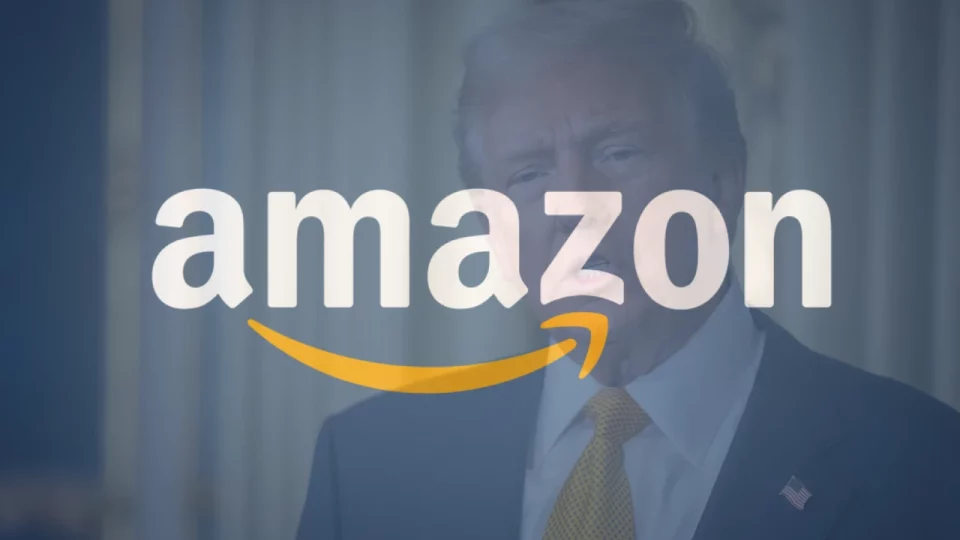Amazon announced its donation of $1 million to President-elect Donald Trump’s inaugural fund, alongside an in-kind contribution of the same value through its Prime Video service, which will air the inauguration ceremony.
The announcement highlights the complex relationship between tech giants and political administrations, raising questions about corporate influence, political affiliations, and media dynamics.
Table of Contents
Amazon and Meta: Tech Titans in the Political Spotlight
Amazon’s donation, first reported by The Wall Street Journal, aligns it with another tech behemoth, Meta Platforms (formerly Facebook), which also pledged $1 million to the January 20 inauguration. While such donations are not unprecedented, they underscore the intricate balancing act that major corporations must perform in navigating political landscapes.
Amazon’s $1 million cash donation was supplemented by the value of broadcasting Trump’s inauguration on its Prime Video platform, a gesture that expands its contribution to $2 million. Meta’s similar pledge positions these companies as significant supporters of a momentous political event, albeit one that carries a level of controversy.
Such contributions from technology firms are often scrutinized for their potential to sway political agendas or curry favor with incoming administrations. The dual support from Amazon and Meta highlights the extent to which Silicon Valley’s giants are willing to engage directly with political processes, even amid ideological differences.
Why This Matters:
- Corporate-Public Dynamics: The decision to support Trump’s inauguration raises questions about how companies manage public perception while engaging in political activities.
- Media and Messaging: Amazon’s choice to stream the event illustrates the growing role of digital platforms in shaping public access to significant political moments.
- Political Balancing Act: Both Amazon and Meta have faced criticism from various political factions, making their donations a strategic effort to maintain goodwill with the incoming administration.
Jeff Bezos: A Complex Relationship with Donald Trump
Amazon’s founder and executive chairman, Jeff Bezos, represents a focal point of the story. While Bezos himself is scheduled to meet with Trump shortly after the inauguration, their relationship has been anything but harmonious. Trump has frequently criticized The Washington Post, owned by Bezos, for what he perceives as biased reporting during his first term as president.
The Washington Post notably chose not to endorse any candidate in the November presidential election, a decision Bezos defended in an opinion piece. “Most people believe the media is biased,” Bezos argued, emphasizing the need for credibility in journalism. This stance did little to mollify Trump, who has consistently lambasted Bezos and Amazon for what he considers unfair treatment.
Historical Context:
- Trump’s critiques of The Washington Post align with his broader disdain for what he often calls the “mainstream media.” His attacks on Bezos reflect a perception of the Post as emblematic of liberal media bias.
- Bezos, for his part, has defended the independence of the Post, asserting that its editorial decisions are separate from his ownership.
The planned meeting between Trump and Bezos could mark a turning point in their contentious relationship, particularly as Amazon continues to expand its influence in sectors ranging from cloud computing to logistics. Whether this meeting will foster collaboration or deepen existing divides remains to be seen.
The Significance of Inauguration Donations
Donations to inaugural funds are not new, but they have grown significantly in scale over recent years. Trump’s first inauguration in 2017 set a record, raising $106.7 million—an unprecedented figure for such events. Contributions from corporations like Amazon and Meta highlight the symbiotic relationship between businesses and political entities.
Key Trends in Inauguration Donations:
- Rising Costs: Inauguration events have become increasingly extravagant, requiring larger financial commitments from sponsors.
- Corporate Influence: Donations often come with expectations of access or favorable treatment, a dynamic that fuels debates about corporate ethics.
- Public Scrutiny: High-profile donations can attract criticism, especially when the donating company’s policies or leadership clash with the administration’s values.
For Amazon, the decision to support Trump’s inauguration could be seen as a pragmatic move to ensure a favorable regulatory environment. However, it also risks alienating parts of its customer base who may view the donation as a tacit endorsement of Trump’s policies.
Balancing Business, Politics, and Public Perception
Amazon and Meta’s donations to Trump’s inauguration illustrate the delicate dance that corporations must perform in the political arena. On one hand, such contributions can secure access and goodwill with a new administration. On the other hand, they risk alienating stakeholders who oppose the administration’s policies or rhetoric.
Implications for Amazon:
- Regulatory Concerns: Amazon’s growing dominance in e-commerce and cloud computing has attracted scrutiny from lawmakers. Supporting Trump’s inauguration may help mitigate regulatory pressures.
- Brand Identity: As a global brand, Amazon must cater to a diverse customer base with varying political views. High-profile political donations can complicate this balancing act.
- Media Dynamics: The Prime Video broadcast of the inauguration positions Amazon as a key player in the media landscape, raising questions about its role as both a platform and a content creator.
Meta faces similar challenges, particularly as it grapples with ongoing debates about content moderation, misinformation, and privacy. Both companies’ decisions to donate to Trump’s inauguration underscore the broader issue of how tech giants navigate their relationships with government institutions.
